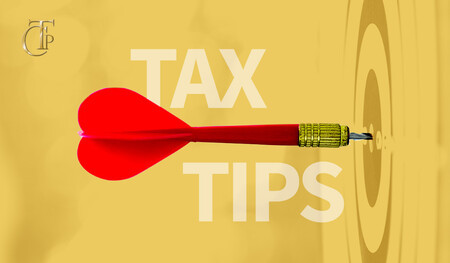 If you’re like most of the CPAs we know, you’re working 60-100 hours per week during tax season. Your staff is exhausted. You’re exhausted. And your family is exhausted, too, because you’re not home very much and when you are, you’re not present. It’s not good for anyone.
If you’re like most of the CPAs we know, you’re working 60-100 hours per week during tax season. Your staff is exhausted. You’re exhausted. And your family is exhausted, too, because you’re not home very much and when you are, you’re not present. It’s not good for anyone.
Hang in there, soldier. You’re almost at the finish line!
But wait, before you get there, there’s something you need to think about—The Tax Season Hangover.
If you’ve been in business for any amount of time, you know it all too well: the brain fog that floods your mind right after finishing the craziest part of your year. It’s similar to hibernation. You leave work shortly after 5pm on the 15th and tune out—for months—before finally waking up somewhere around Halloween, ready to work again.
Good business model? We think not. There’s a better way. And it starts with creating a strategy to avoid the Tax Season Hangover, altogether. Intrigued? Keep reading…
How To Avoid The Tax Season Hangover
- Plan For Rest – You need time to recharge. Plan for truly restful rejuvenation. This may be difficult considering that your family and friends probably feel like they haven’t see you in months. Often family vacations and other personal demands are simply not restful. Allow for this and plan time for both. Without a specific plan to relax and refresh, your tax season fatigue can last throughout the summer, killing your motivation for any plans you’ve made for business change and growth.
- Plan For Next Year – What changes do you want to see next tax season? Make your list of what you definitely do not want to repeat ever again. Then create a strategy to get there. Make a list of resources you are in need of – things like staff, training, better technological tools, systems etc. while you actually have time left in the year to achieve these things. Without a plan, tax professionals can lag in their “hangover” and by the time they generate enough energy to consider these things, there simply isn’t enough time left in the year to create real improvements.
- Set Income Goals – Since revenue windfalls are common place during tax season months, many tax professionals fall victim to slowed income in the months immediately following. Without specific income goals, you may find yourself aimlessly focusing on the details of work without connecting the need for strategic action around income planning.
- Follow Your Dreams – Do one thing each week from the lifestyle you dream of having. If your dream list includes only reviewing others work rather than preparing returns yourself, give yourself that luxury at least one day each week. If your dream includes taking Fridays off, give yourself permission to do it now, rather than waiting for the future. Get yourself in the habit of experiencing the feelings behind your desired behavior. This will be helpful in building your confidence of accomplishing your plans. You will find your future is much more present when you include this in your day to day. Pursuing dreams and goals outside of your professional life will help you to disconnect when you’re not at work and give you the ability to rejuvenate.
Tax season is a stressful, exhausting, sometimes even overwhelming time. But if you plan ahead and do what you need to in your off-season, it can make those first few months of each year much easier to bear.
That’s it for today but be sure to come back next week when we’ll be discussing A Tax Pro’s Guide to Financial Services. And remember, you’re almost at the finish line. Hang in there, soldier.





